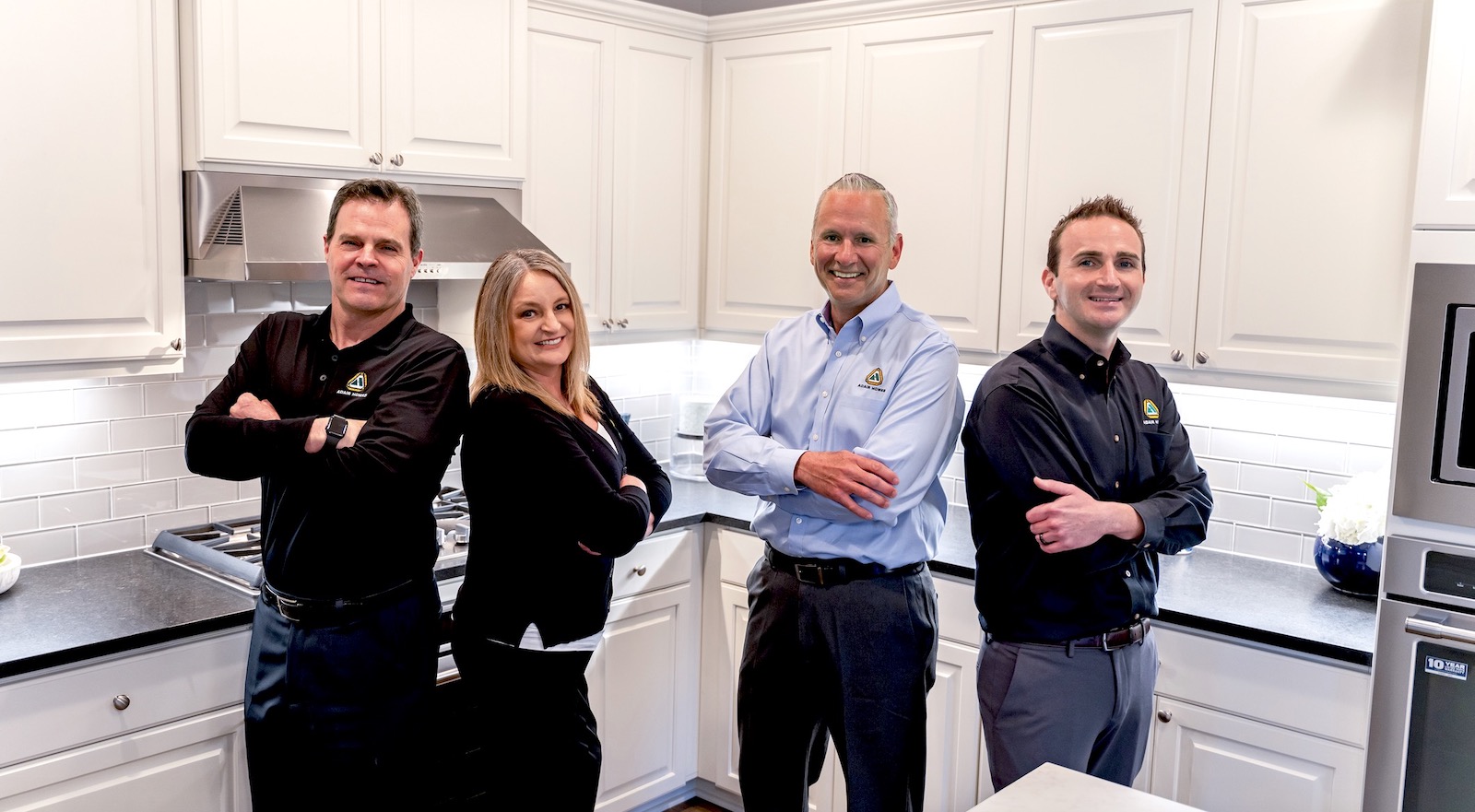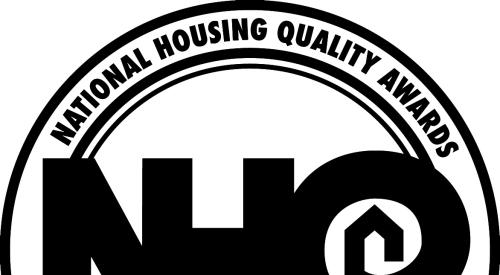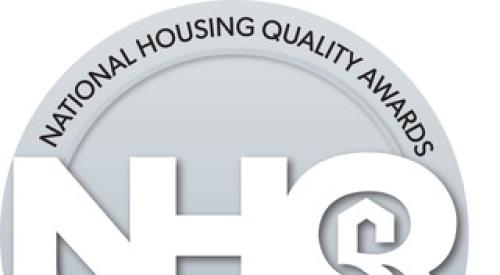The validation, and the reckoning, begin well before the home builders that apply for Pro Builder’s National Housing Quality (NHQ) Award receive the final feedback report from the judges who assessed their operations first-hand.
“Just spending two days with the judges evaluating our business and asking us really deep questions gave us so many takeaways,” says Ann Rivers, CFO of Adair Homes, in Vancouver, Wash., an NHQ Bronze Award recipient for 2021. “We circled up afterward, went into the conference room, and wrote all of the feedback we could remember on the whiteboard and used it to build our 2021 plan.”
Julie Hancock, managing director and co-owner of Camelot Homes, in Scottsdale, Ariz., also a Bronze Award winner, echoes that sentiment. “Even before we got the report, we knew from the judges some of the things it would say, and we started working on those right away.”
Our four winners share why they applied for NHQA and what they're working on after receiving their feedback reports [VIDEO]
Rachel Flint of Bronze Award honoree Hubbell Homes, in West Des Moines, Iowa, adds about the judges’ visit: “It validates the accomplishments you made over the last several years, but it also highlights where the next steps need to go.”
And while James Monroe, owner of James Monroe Homes, in Lexington, Ky., our Honorable Mention recipient, says he probably would have discovered deficiencies on his own without going through the NHQ process, he admits it would have taken much longer. “Even a blind squirrel will find a nut once in a while, but it would have been a long and difficult challenge,” he says. “Why reinvent the wheel when you have access to these judges who already have the road map?”
Filling out the National Quality Award application is largely a self-assessment exercise that provides a snapshot of a builder’s current status in eight areas of its operation.
For Hancock, going through the NHQ’s highly detailed application was akin to going to college and then pushing further to earn a master’s degree. For Hubbell Homes, NHQ is helping set the stage for the company to become an elite builder, and president and CEO Rick Tollakson credits the process for his company’s improved trade partner relationships. Starting in November, Adair used the exercise to begin business planning for the 2021 fiscal year, and Monroe sees NHQ as a tool to scale up his company to 50 closings per year.
About the NHQ Awards
Tailored to the home building industry, NHQ is modeled on the Malcolm Baldrige National Quality Award and ISO 9000 concepts for quality management. Filling out the application is largely a self-assessment exercise that provides a snapshot of a builder’s current status in eight areas of its operation:
- Leadership
- Strategic planning
- Performance management
- Customer satisfaction
- Human resources
- Construction quality
- Trade relations
- Business results
The NHQ jury consists of builders that have earned NHQ Gold, along with quality management experts. This group reviews and scores the NHQ written applications, from which finalists are selected for on-site evaluations. A trio of judges grades the builders and validates that the systems and processes mentioned in the application are in use. Those grades are combined with the application scores to determine whether an applicant should be recognized for an NHQ Award and, if so, at what level. Regardless, all NHQ applicants receive an extensive 15-to-30-page report describing their individual company’s strengths and opportunities for improvement.
The 2021 Winners
Bronze Award: Adair Homes
Bronze Award: Camelot Homes
Bronze Award: Hubbell Homes
Honorable Mention: James Monroe Homes
Bronze Award: Adair Homes
Headquarters: Vancouver, Wash.
Founded: 1969
Markets: 19 locations in Oregon, Washington, Idaho, and Arizona
2019 Revenue: $130.3 million
2019 Closings: 509
Company Strengths
• Strategic planning, specifically process implementation
• Employee management and workforce development
• Financial results at industry-leading levels
Adair Homes’ NHQ journey was like peeling layers off an onion. “You go deeper and deeper and you learn more about yourself,” says Byron Van Kley, Adair’s CEO. “We learned so many actionable takeaways for improvement.”
One such takeaway was the builder’s realization that it may be measuring too many variables. As a result, managers trimmed a dashboard of almost 30 metrics to a smaller number that the team can focus on daily. “We think we can effect change quicker if we simplify just a little,” Van Kley says.
That move also addressed another observation from NHQ judges, that Adair appeared more reactive than proactive, fixing a problem in a process or system after it happened. “We created a smaller dashboard that involves all areas of our company and one or two measurements per group, starting with leads, sales margin, cycle time, customer experience, and financial performance,” CFO Ann Rivers says. “We felt these were the metrics through which we could view the company’s success and act very quickly if we saw anything falling.”
Judges noted that Adair’s short- and long-term strategic planning was a company strength. The builder has 10-, three- and one-year “rocks,” or goals, as prescribed in its Entrepreneurial Operating System, a strategic planning method based on the book Traction: Get a Grip on Your Business, by business coach Gino Wickman.

But while there was clarity about the goals Adair wanted to accomplish, there was little detail about how to get there. “Now we’ve boiled the goals down to quarter by quarter, which provides a high degree of accountability and urgency on every rock,” Van Kley says.
The NHQ feedback report validated that Adair’s procedures and systems to pursue continuous quality improvement exist, but it also showed that there’s work to do to mature them. For example, the builder’s SWOT (strengths, weaknesses, opportunities, and threats) analysis can be expanded to include employees and other company stakeholders. More formalized trade partner relationships would solicit more feedback, result in more recognition and training in process improvement, and implement key performance indicators. “It’s not that the feedback wasn’t there,” says Jim Sattler, VP of operations, “but that it wasn’t structured or well defined, and that’s what we’re really going after now.”
That to-do list will be complemented by the company’s existing strengths: organizational transparency, engaged human resources, strong business results, and leadership that regularly reviews financial performance and is focused on accomplishing objectives and improving performance.
“What came out of this process for me,” Van Kley says, “is that [it showed] we’re already doing so many things well, but it’s that incremental consistency across the entire footprint that can really drive us to a whole new level.”
Bronze Award: Camelot Homes
Headquarters: Scottsdale, Ariz.
Founded: 1969
Markets: Phoenix, Scottsdale, Tempe, Fountain Hills, Mesa, Gilbert, Chandler, and Peoria, Ariz.
2019 Revenue: $73.7 million
2019 Closings: 46
Company Strengths
• Leadership team’s alignment regarding customer satisfaction is integrated throughout the organization
• Homebuying experience is well managed, leading to a high level of customer satisfaction
• Employees feel responsible and are an integral part of satisfying customers

Completing a 20-page application about your culture of continuous improvement is arduous, but it was just what Mark Hancock, co-owner and managing director of Camelot Homes, in Scottsdale, Ariz., was searching for to develop a five-year vision to unify his company.
Frustrated that they didn’t have all of the processes or procedures the application demanded, the team was tempted to drop the effort. But Hancock reminded them that the NHQ program isn’t about getting an award; it’s about making the company better.
“We got every department involved and behind it and that made it really exciting for our team,” says Julie Hancock, also co-owner and managing director. “It made us think about how we can improve our processes, to get others started, and what that would do for us.”
The NHQ program isn’t about getting an award; it’s about making the company better.
Earning a Bronze Award validated the company’s laser-like focus on customer satisfaction. Homebuyer survey company Eliant Experience Management, based in Aliso Viejo, Calif., surveys Camelot Homes buyers at move-in, mid-year, and after 12 months of occupancy. The builder held a top 10 ranking among Eliant builder clients on the move-in survey for 24 months during 2018 to 2019 (95.5% for last year) and the No. 1 ranking on the year-end survey 15 times during that period (96.1%). Camelot shares that customer satisfaction data with all of its employees and trade partners, uses key performance indicators for all customer-involved processes, and invests about $300,000 annually in bonuses—$500 to every employee—every time the builder achieves a certain ranking.
The Hancocks also looked outward to see how their operation measured up to other builders. Early on, they found few significant industry metrics beyond profitability and customer satisfaction, says Julie, but then recognized them as catalysts for improvement. “We realized that if we did measure those things, we could improve our bottom line even more,” she says.

The judges recommended tracking metrics such as delay days and variance rates, and benchmarking variables such as sales commissions, warranty performance, field operations, and marketing against other builders. In addition, Camelot is now giving its trade partners a view of its production pipeline so they can plan ahead, and is implementing a more formal procedure to increase staff participation in process improvement and strategic planning.
Another benefit from the NHQ journey is the opportunity to develop and have mature processes and procedures in place when the time comes to pass Camelot Homes to the next (fourth!) generation of this family business, which celebrated 50 years in 2019.
“Handing them the reins with those instructions and having them work through this right along with us can only make them better operators than I am right now, and make the company better and help the company’s longevity,” Mark Hancock says.
Bronze Award: Hubbell Homes
Headquarters: West Des Moines, Iowa
Founded: 1998
Markets: Des Moines, Iowa, and Omaha, Neb.
2019 Revenue: $80.2 million
2019 Closings: 290
Company Strengths
• Leadership and performance management
• Good team environment; employees are aware of individual contributions being part of the company’s success
• Company contributes to employee well-being, satisfaction, and motivation
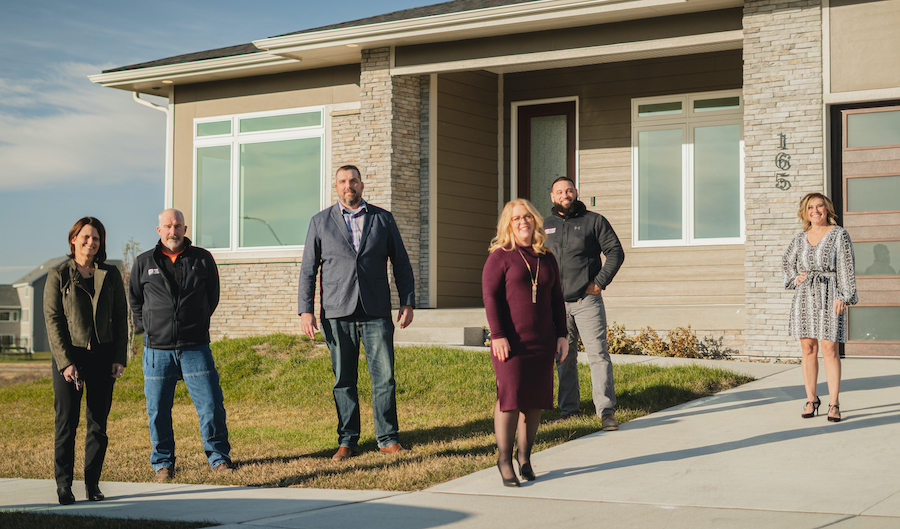
Hubbell Homes’ first NHQ application, submitted in 2017, set the stage for driving improvements in the three years since. The builder retained Lean building consultancy TrueNorth Development to reduce construction and purchasing inefficiencies, and borrowed a quality program from a networking partner, which includes doing inspections throughout the build process, ultimately slashing Hubbell’s warranty work orders from more than 1,500 in 2017 to just 123 as of early December 2020.
“The second time we went through completing the application [in 2020] it was so uplifting for the entire team,” says VP Rachel Flint. “The No. 1 thing that came out of it was the entire team recognized how far we’d come since the last time—and that was before we received the news we were getting a site visit.”
Among Hubbell Homes’ strengths noted by the NHQ judges is that the builder is positioned to rise to the highest levels of quality management. In addition, it can leverage some of its other strengths, such as leadership and employee performance management, as best practices to further bolster certain aspects of the business, including customer satisfaction, strategic planning, and trade relations.
The judges also recommended increasing participation with trades and suppliers in quality construction initiatives, and training managers, employees, and trade partners on tools for improving processes and problem-solving that, in turn, would boost customer satisfaction. In fact, since the September NHQ site visit, trade partners and the Hubbell team have identified 10 issues and are collaborating on next steps and any training that needs to happen to solve them.
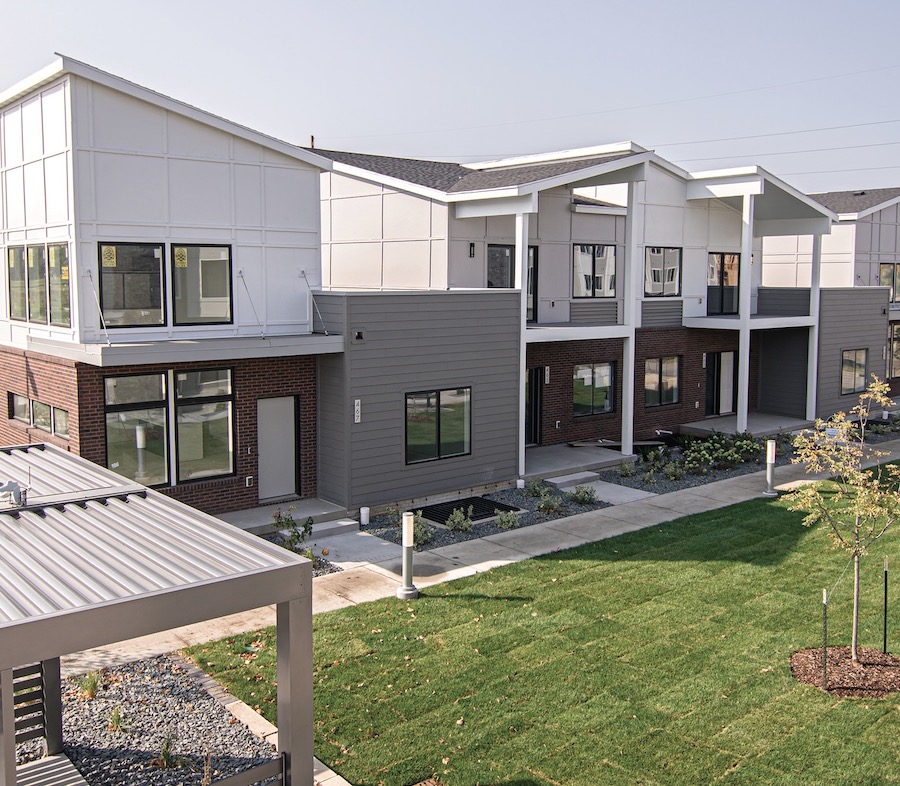
To better understand the roots of customer dissatisfaction, the builder plans to launch various focus groups and delve into the homebuyers’ experience of purchasing Hubbell’s spec and semi-custom homes, while another group will look at the building process from the buyer’s perspective.
“Having the on-site feedback from the NHQ judges was really instrumental,” Flint says. “It highlighted some process errors we have at the moment that didn’t come to light until we’d been asked some probing questions by the judges.”
Hubbell Homes launched in 1998 as a subsidiary of Hubbell Realty Co., and the division expanded into Omaha, Neb., in 2019. Management intends to tie the NHQ process improvement journey to the other sides of the larger business. “We’re really trying to create best-in-class outcomes for our customers,” says Kyle Gamble, EVP of Hubbell Realty Co., including the home building operation in Omaha. “And if we can continue to foster this continuous improvement mindset that’s really taking hold with Hubbell Homes and translate that to other aspects of our business, then we will really see the benefits of the learning and growth opportunity that NHQ provides.”
Honorable Mention: James Monroe Homes
Headquarters: Lexington, Ky.
Founded: 2006
Markets: Central Kentucky
2019 Revenue: $10.4 million
2019 Closings: 35
Company Strengths
• Leadership and strategic planning
• Planning practices that ensure a consistent, disciplined approach to managing quality and customer satisfaction
• Weekly meetings that keep everyone aligned to a common purpose
NHQ showed James Monroe that his company, James Monroe Homes, is on track to develop mature processes and procedures with a company culture of continuous improvement.
The builder is less than a year into implementing MarkSystems, a cloud-based project management software from ECI Software Solutions that integrates all company functions, processes, and people into a single database. The NHQ judges noted that deeper adoption of this enterprise system will enable the builder to further define, document, and implement key performance indicators. Among their recommendations: more metrics for tracking variable purchase orders (VPOs), trade performance, callbacks, warranty costs, and customer satisfaction, as well as doing more market research and gathering customer data.

“While I thought our warranty program process was good,” Monroe says, “I couldn’t really tell you how much it costs per house.” Monroe says his company will pursue all of the NHQ judges’ recommendations to better define quality standards and expectations with the builder’s trade and supply partners.
Before applying for NHQ, James Monroe Homes started using more surveys to solicit feedback from employees, trades, and supplier partners to help the builder become proactive, rather than reactive, in reviewing and changing processes as problems arise. “Although I feel our process management is good,” Monroe says, “the NHQ judges pointed out that we don’t have the metrics to analyze how well the process is working. We always said the process is working—when we don’t have problems. But you’re going to have problems. You can’t please everybody. So, do you change the process because it isn’t meeting your metrics or because a customer isn’t happy about something? That gave me the idea to include more metrics in our processes to validate those processes.”

The vision for the company over the next five years is for it to attain 5% of new-home sales in the central Kentucky market—about 80 to 100 units—and become the region’s No. 2 builder.
Between the new software system and feedback from NHQ and industry mentors, Monroe believes he has the road map to scale up the organization. “We’ve set up many of our processes and procedures based on multiple systems,” he says. “Now we’re trying to evolve those with [the new enterprise] system, so we can use the math. We don’t want to do it piecemeal. We want to get the most out of it.”
